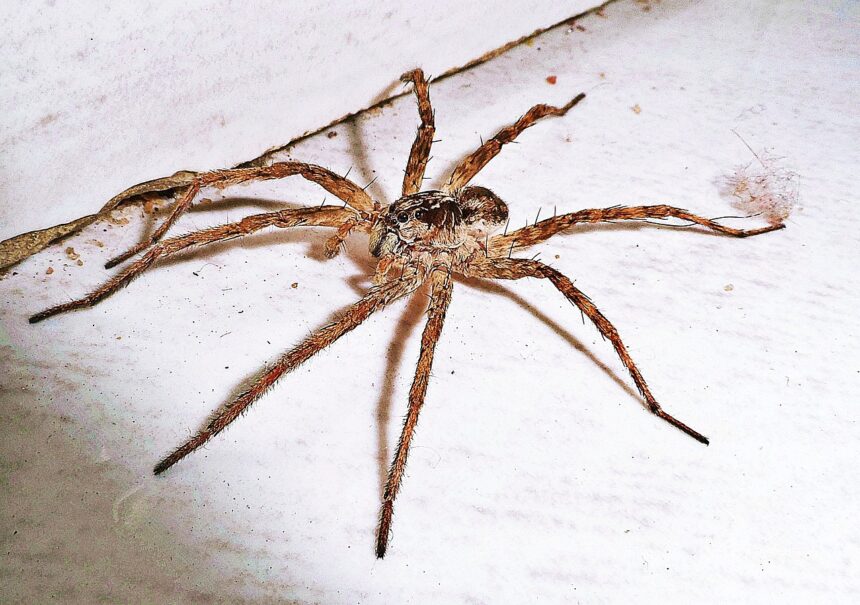Spiders are a common sight in homes, especially during the colder months when they seek warmth and shelter. While most spiders are harmless and even beneficial by keeping other pests in check, the presence of certain species can pose a threat to health and safety. For homeowners who are dealing with unwanted spider guests, effective spider pest control is essential. In this article, we’ll explore how to effectively manage spider infestations and prevent future encounters.
Understanding the Need for Spider Pest Control
Spiders are known to thrive in quiet, dark areas such as basements, attics, and garages. Although they are beneficial in controlling other insects, their sudden appearance inside the house can be unsettling, especially for individuals who have a fear of spiders, known as arachnophobia. Certain types of spiders, such as the black widow or brown recluse, can be dangerous due to their venomous bites, which can cause severe reactions. Therefore, it’s important to understand how to control and prevent spiders from entering your home.
Identifying Common Household Spiders
Before diving into pest control methods, it’s essential to identify the common types of spiders that may invade your home. Some of the most frequently found species include:
1. House Spiders
These are the most common spiders in homes. House spiders are typically harmless, feeding on small insects like flies and ants. They are usually found in quiet corners, basements, and attics. While they don’t pose a significant threat, their webs can accumulate dust and debris, creating an unkempt environment.
2. Black Widow Spiders
Easily recognizable by their shiny black bodies and red hourglass marking, black widow spiders are dangerous and require immediate pest control attention if found indoors. Their venomous bite can cause severe pain, muscle weakness, and, in extreme cases, death. These spiders are most commonly found in secluded areas like sheds, garages, and basements.
3. Brown Recluse Spiders
Known for their violin-shaped marking on their back, brown recluse spiders are another dangerous species that can bite and cause serious health issues. Bites from a brown recluse can lead to tissue necrosis and severe allergic reactions. They prefer hiding in dark, undisturbed areas such as closets, storage rooms, and behind furniture.
4. Tarantulas
Although intimidating in appearance, tarantulas are generally not aggressive toward humans and are often kept as pets. However, if found in the wild or in areas where they aren’t welcome, they can cause some fear. They are large and hairy, typically inhabiting damp, dark spaces like crawl spaces or the exterior of the home.
Signs of a Spider Infestation
Detecting a spider infestation early is key to controlling it. Here are a few signs to look out for:
- Spider Webs: The presence of webs in corners, behind furniture, and in ceilings can indicate a spider infestation. Spiders weave webs to catch prey, and if you notice webs forming in multiple areas, it could be a sign that spiders are actively inhabiting your space.
- Sightings of Spiders: If you see multiple spiders in your home, especially in hidden or dark areas, it may suggest that there is an active population of spiders in your living spaces.
- Egg Sacs: Spiders lay eggs in sacs that may appear in secluded areas. If you find these sacs, it’s a sign that the spider population could grow rapidly if left unchecked.
Preventive Measures to Keep Spiders at Bay
The first step in controlling a spider problem is prevention. Here are some effective tips to help keep your home spider-free:
1. Seal Entry Points
Spiders typically enter homes through small cracks and gaps in windows, doors, or walls. Sealing these entry points with caulk or weatherstripping is one of the most effective ways to prevent spiders from finding their way inside. Check window seals, door frames, and foundation cracks for any openings.
2. Keep Your Home Clean
Regular cleaning can go a long way in deterring spiders. Remove webs and egg sacs from corners, ceilings, and other hard-to-reach areas. Dust and vacuum frequently to eliminate the insects that spiders feed on, reducing their food source. Keeping surfaces clean will make it less likely for spiders to settle in your home.
3. Eliminate Clutter
Spiders love hiding in cluttered spaces. Keep your home organized and minimize the number of places where spiders can build webs. Pay attention to basements, closets, and storage areas, which are ideal hiding spots for spiders. By keeping these areas tidy, you will reduce the number of potential hiding spots for spiders.
4. Install Screens
Use screens on windows and doors to keep spiders and other pests from entering your home. Ensure that the screens are intact and have no holes. A good-quality screen can act as a barrier against spiders entering your home through open windows and doors.
5. Use Outdoor Lighting Wisely
Spiders are attracted to the insects drawn to outdoor lights. Consider switching to yellow or amber outdoor lights, which are less attractive to insects. Reducing the number of insects around your home can decrease the number of spiders that are attracted to your living spaces.
Natural Spider Control Methods
If you prefer a natural approach to pest control, there are several methods you can use to deter spiders from entering your home:
1. Essential Oils
Spiders dislike certain essential oils, such as peppermint, lavender, and eucalyptus. You can create a natural spider repellent by mixing a few drops of essential oil with water in a spray bottle and applying it to areas where spiders tend to appear. Not only will this repel spiders, but it will also leave your home smelling fresh.
2. Citrus Peels
Spiders are repelled by the scent of citrus. Place orange, lemon, or lime peels in areas where you frequently see spiders, such as windowsills and corners. The scent of citrus works as a natural deterrent and can be a more pleasant alternative to chemical-based repellents.
3. Vinegar Spray
Vinegar can also be used as a spider repellent. Mix equal parts of vinegar and water in a spray bottle and apply it to spider-prone areas. This mixture can help deter spiders while also cleaning surfaces and eliminating any insects that might attract them.
When to Call a Professional Spider Pest Control Service in London
While natural methods and prevention can help reduce the number of spiders in your home, a more thorough and long-lasting solution may require professional spider pest control in London. Experienced pest control experts can provide a comprehensive assessment of your home, identify the specific type of spiders present, and implement targeted treatments to eliminate and prevent future infestations.
A professional pest control service will likely use a combination of chemical and non-chemical treatments, depending on the severity of the problem. They may also provide follow-up treatments and advice on how to maintain a spider-free environment.
Conclusion
Spiders can be a nuisance, but with the right preventive measures, you can keep them at bay. Regular cleaning, sealing entry points, and using natural deterrents can help reduce spider activity in your home. If you have a significant spider infestation or are dealing with dangerous species, it’s best to consult a professional pest control service to ensure that your home remains safe and spider-free. By staying vigilant and proactive, you can enjoy a peaceful, spider-free living space.
By addressing spider infestations early and taking the necessary precautions, you can ensure that these eight-legged invaders stay outside where they belong. With the right knowledge and action, spider pest control is manageable and can help you create a safer, more comfortable living environment for you and your family.


